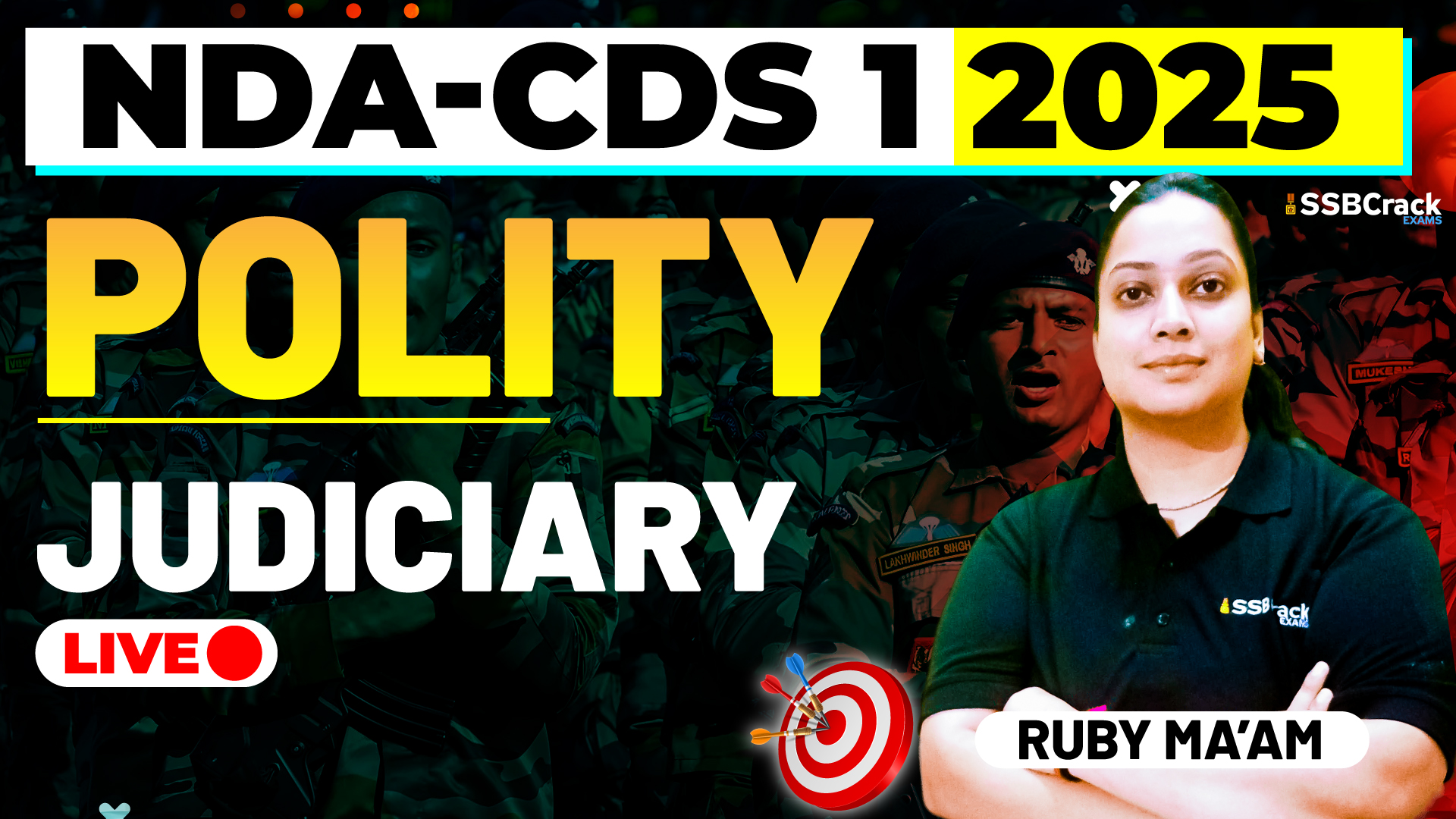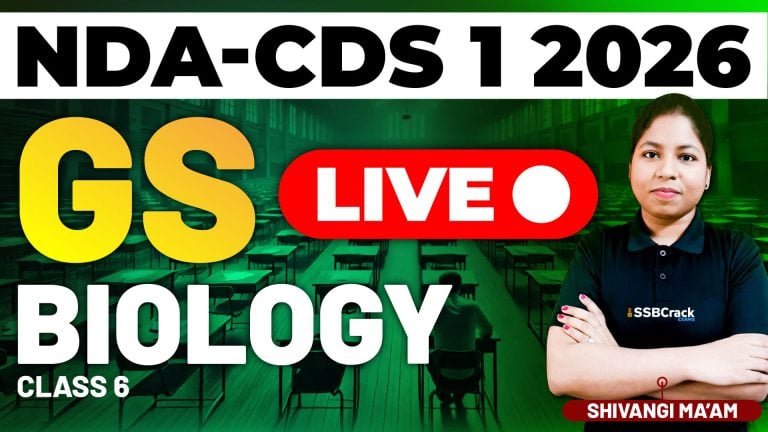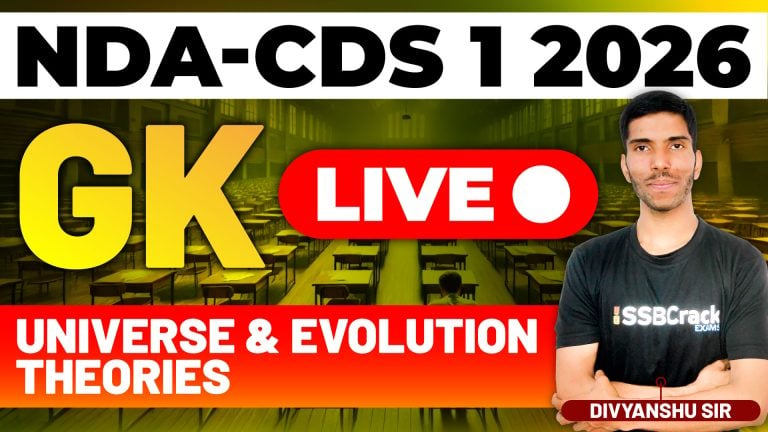As an aspirant for the National Defence Academy (NDA) and Combined Defence Services (CDS), your understanding of key topics in polity is crucial. One of the most significant areas in Indian polity is the Judiciary. Whether you are preparing for your written exams or SSB interviews, a solid grasp of how the judiciary functions and its role in the democratic framework of India is essential. This article will guide you through the importance of the judiciary, helping you develop both your academic knowledge and practical insights.
What is the Judiciary?
The judiciary is one of the three pillars of Indian democracy, alongside the executive and the legislature. It is responsible for the interpretation and enforcement of the law, ensuring justice, protecting citizens’ rights, and maintaining the rule of law in society.
In India, the judiciary consists of a three-tier system:
- Supreme Court – The apex court with the highest authority.
- High Courts – One for each state or group of states.
- Subordinate Courts – District and Sessions Courts operating at the grassroots level.
This structure ensures that justice is accessible to every citizen, and it acts as a check on the powers of both the executive and the legislature.
Why Is Judiciary Important for NDA & CDS Aspirants?
- Upholding the Constitution
The judiciary’s primary responsibility is to uphold the Indian Constitution. This includes safeguarding the fundamental rights of citizens, ensuring the separation of powers between various branches of the government, and preserving the democratic fabric of the country. As future leaders in the armed forces, understanding the judiciary’s role in preserving democracy is essential, as the Constitution forms the backbone of governance in India. - Ensuring Justice and Fairness
One of the critical roles of the judiciary is to provide justice to the aggrieved parties and resolve disputes according to law. It maintains checks and balances on the actions of the government, ensuring that laws are just and are applied equally to all. This understanding helps you as a future officer in ensuring fairness and adherence to laws in all operations under your command. - Judicial Review
Judicial review is the judiciary’s power to review laws and executive actions to determine whether they conform to the Constitution. This doctrine ensures that no law passed by the legislature or action taken by the executive violates the Constitution. As a future defender of the country, understanding this aspect of the judiciary can help you recognize the role of legal and constitutional checks in maintaining the balance of power in governance. - Safeguarding Fundamental Rights
The judiciary, especially the Supreme Court, is the guardian of fundamental rights. It ensures that these rights are not infringed upon by either the state or individuals. The protection of individual rights, such as the right to freedom of speech, the right to equality, and the right to life, is crucial for maintaining the democratic ethos of India. As an officer in the Indian Armed Forces, this knowledge is vital, as you will be entrusted with ensuring that your actions do not violate the rights of citizens during your duties. - Role in Emergency Situations
During national emergencies, the judiciary ensures that the government’s extraordinary powers are used within the constitutional framework. It acts as a safeguard against potential misuse of authority. Understanding the judiciary’s role during such critical times is essential for defence aspirants, as the armed forces often work in conjunction with the civil administration in these situations. - Dispute Resolution
The judiciary is essential in resolving disputes, whether they are between individuals, organizations, or even between states and the central government. In situations where conflict or disagreement arises, it is the judiciary that steps in to provide a legal resolution. This can be particularly important in matters related to territorial disputes or any issues concerning national security. - Legal Knowledge for SSB Interviews
During your Services Selection Board (SSB) interview, you may face questions related to current affairs and the functioning of democratic institutions, including the judiciary. Having a sound understanding of how the judiciary works, its role in maintaining law and order, and its importance in upholding democratic values can help you perform better in these interviews.
Key Cases Every Aspirant Should Know
- Kesavananda Bharati Case (1973): This landmark case introduced the concept of the Basic Structure Doctrine, which states that the fundamental aspects of the Constitution cannot be altered, even by Parliament.
- Maneka Gandhi Case (1978): This case expanded the interpretation of Article 21 (Right to Life) and stressed that personal liberty cannot be curtailed arbitrarily.
- Shah Bano Case (1985): This case is significant for its role in Muslim Personal Law and the relationship between law and religion in India.
Conclusion
The judiciary plays a pivotal role in maintaining the legal and constitutional integrity of India. As future officers of the Indian Armed Forces, understanding its functions and importance helps you appreciate the democratic framework that you will swear to protect. The judiciary ensures that justice prevails, democracy thrives, and individual rights are protected, which are values you will carry forward in your military career.
Preparing for NDA and CDS exams requires you not only to understand the factual details about the judiciary but also to internalize its importance in shaping the nation’s governance and ensuring the rule of law. This knowledge will not only help you in clearing your written exams but will also serve you well throughout your military career as a defender of the Indian Constitution.







